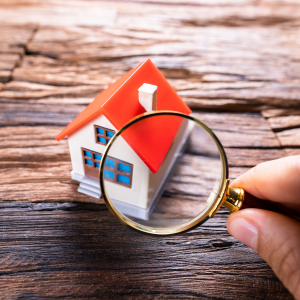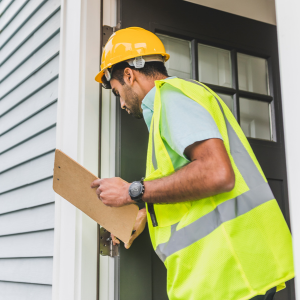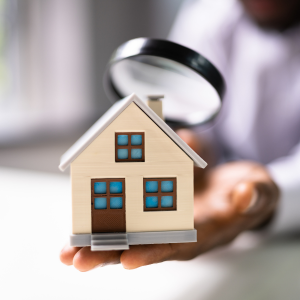
Comprehensive Guide to Home Inspections in Long Island
People buying or selling a home on Long Island must know who pays the assessment and inspection fees. When you buy a house on Long Island, you should get a home inspection. The inspector will give you a detailed report on the dwelling’s state.
Most of the time, the buyer pays for the inspection. This helps them find any issues before they buy the house. If these checks find issues with the construction, wiring, or plumbing, the home’s value might go down.
On the other hand, buyers usually pay appraisal fees as part of their closing costs. Lenders need these fees to figure out how much a house is worth on the market. For the deal to go through, the buyer and seller may agree to split costs or make seller offers. This means that the seller will pay some of these costs.
These real estate prices can help buyers create accurate budgets and give sellers a competitive edge in Long Island’s challenging housing market. Contact us today to get expert guidance and maximize your real estate success in Long Island.
Essential Tips for Navigating Home Inspections in Long Island
When people buy or sell a home on Long Island, they must know who pays for the inspection and assessment fees. These costs can make a big difference in how you plan to spend your money in the long run in today’s competitive real estate market.
Most of the time, the buyer pays for the inspection because they want to make sure the house is in good enough shape for their needs. A lot of work goes into home inspections on Long Island. They look for problems with the structure, pests, and environmental risks like mold or radon.
You usually have to pay inspection fees to get a mortgage, though, and the buyer also pays those. To speed up the deal or ensure they get the sale, sellers often agree to pay some or all of these costs during talks.
People who want to buy a home on Long Island should be clear with their real estate agents about these fees and how they fit into the bigger picture of buying a home in this area. Both sides can make more accurate budgets and avoid surprises during the deal if they know who usually pays these fees.
Expert Advice on Preparing for a Home Inspection in NY
Before you go on a home inspection on Long Island, you should know who usually pays for the assessment and inspection fees. This is because both are very competitive. In New York, these prices can change if buyers and sellers agree to the new rules.
The sellers usually pay for the inspection as part of their due diligence to make sure the house lives up to their hopes and expectations. But when it’s a buyer’s market, owners may agree to pay some of the costs of an evaluation or inspection to get more people to buy their homes.
Talking to real estate agents in the area who know how the Long Island home market works can help these talks go more smoothly. They can tell you about current events, such as how common seller concessions are and how they might change how you plan to handle the deal in general. If you’re unsure where to begin, learning how to sell a fire-damaged house can provide valuable insight into pricing, marketing, and navigating repair or disclosure requirements to attract the right buyers.
The rules in your area about who pays what fees can also help buyers make smart budgets and avoid shocks at the closing. Hiring a real estate agent or lawyer who deals with New York real estate is the best way to make sure that all the details of the appraisal and inspection talks are taken care of properly. This will make it easier to buy a house on Long Island.
How to Choose a Reliable Inspector or Appraiser in Long Island

When looking for a good Long Island home inspector or assessor, there are a few things you should remember to make sure you get good work. First, look for professionals who are trained and licensed in New York State. This will make sure that they meet the requirements for checking and evaluating.
Please learn about good inspectors and appraisers from real estate agents or recent Long Island owners who have used and liked them. Sites like Yelp and Google also have reviews and ratings from experts. These can help you figure out how good the service is that different pros provide.
When you interview people, make sure to ask about their experience, especially if they have worked on properties like yours before. A lot can depend on how well they know the local building codes and market trends when giving their opinions. Also, ask for a sample report to see how well they do their job.
Ensuring they have professional liability insurance is another way to protect yourself if they make a mistake or forget to include something during the check or appraisal.
Understanding the Costs of Home Appraisal in Long Island, NY
When buying or selling a home on Long Island, both sides need to know how much an evaluation costs. These days, the buyer is usually the one who pays the home assessment fees as part of getting a credit.
The fees may differ depending on the location, size, and other features of the land. Because of these factors, evaluation fees on Long Island can range from $300 to $600 or even more.
Sellers sometimes agree to pay for improvements during negotiations to make their houses more appealing. Both sides need to know about these costs immediately because they are needed to close a real estate deal on Long Island, where the market is very competitive.
Also, figuring out early on who pays for what keeps things clear and makes sure that everyone knows what their financial responsibilities are when the deal is done.
Key Factors Influencing Property Appraisal Prices in New York
Many things in New York’s Long Island can badly affect the real estate market. Location is still the most important factor, and homes in famous areas or near services like schools and public transit sell for more money.
The condition of the property is very important. Homes that only need small fixes or changes tend to get higher appraisals than homes that need major renovations. The value of an assessment is also affected by market trends, since changing demand can lead to changes in price estimates over time.
The size and layout of a house, as well as the number of bedrooms and baths, can also affect its value. Another important factor is sales information from nearby homes similar to the one being bought. This information is used as a guide for the current market value.
Lastly, interest rates and the number of jobs can change assessment prices. These signs show how the economy is doing in general and affect how people act in the tough real estate market on Long Island.
How Location Affects Real Estate Appraisal Fees in NY
If you live on Long Island in New York, where you live is very important when it comes to inspection fees. Assessment fees change greatly based on the area’s well-knownness, the house’s worth, and the number of people who want it.
Some places may have higher appraisal fees, like nice parts of Nassau or Suffolk County that people want to live in. This is because it takes more time and work to look at bigger farms or homes with unique features. On the other hand, review costs may be lower in less populated or rural parts of Long Island, where it is easier to do so.
Evaluation fees can vary depending on where you live on Long Island, the local regulations, and the number of comparable sales in your area. These factors in New York directly impact costs, so anyone looking to buy or sell their home for cash in Long Island, NY, should know them.
The Impact of Market Trends on Property Valuation in Long Island
The worth of homes on Long Island fluctuates because the market changes so often. These trends have also changed the way inspections and assessments are done. Prices for homes fluctuate based on changes in the market, loan rates, and the number of people shopping for homes. Getting the correct tests is becoming increasingly important.
The prices that are set are based on these trends, which show how the market is doing at the moment. Inspections are also a great way to find problems with a house that could reduce its value.
Most of the time, people who want to buy or sell something agree on who will pay the fees for the appraisal and check. Those who buy and sell homes on Long Island need to know about these prices because they change how much it costs to live there and how much you can spend.
In this busy area, property values need to be correct and in line with how the market is going right now to make sure that costs are fair and the buying process is honest.
Evaluating the True Value of Homes Through Professional Assessments

Professional checks and appraisals are often necessary to determine a house’s worth in Long Island’s real estate market. These tests are very important for determining a house’s worth and condition. They tell buyers and sellers important things.
These fees allow an unbiased estimate of a home’s worth based on similar sales data and the property’s unique features. The buyer usually pays for these fees or negotiates them as part of the closing costs. Buyers often pay for checks as part of their due diligence. When people buy a house, these reports tell them about any problems that must be fixed before the deal is finished.
An expert appraiser will look at location, size, and amenities to give you the right price. On the other hand, inspectors carefully check things like the roof, water, and electricity to find problems that aren’t obvious. People looking to buy or sell a home on Long Island need to get these professional evaluations because they show more than just the selling price of a home, but what it is worth.
Breaking Down the Expenses: Appraisal Vs. Inspection Costs
People who want to buy or sell a home on Long Island must know who pays the inspection and assessment fees. The buyer pays the appraisal fees, usually around $300 to $500. Lenders need to know how much the house is worth on the market before they will give the buyer a loan.
People who buy a house generally pay for inspection fees, which can be around the same amount depending on the type and size of the house. These inspections are important to find problems with the house that could hurt its condition or value.
However, during talks, buyers might agree to pay for these costs as part of a deal to lower the closing costs or to get the house sold quickly. As you make an offer or counteroffer, it may be important to know who will pay these fees. This is especially true on Long Island, where homes sell quickly and bidding wars are common.
Now that the market is so busy, these forces help everyone in a real estate deal do their job better.
Inspection Fees and Who Covers Them in Long Island Real Estate
Anyone on Long Island who wants to buy or sell a home has to pay an inspection fee. For people who are buying a house, these fees cover the cost of the inspection. They do this because they want to be careful.
Inspectors examine the whole house to find any problems that might make it unsafe or less valuable. People on Long Island often think they have to pay a full check because homes there are so expensive.
They do these things to make sure they’re making the right choices and to make sure they don’t have to pay for repairs after the deal is over. On Long Island, most people who want to buy a house don’t pay for checks. However, some sellers may offer to do so as part of a deal to make their house more appealing or competitive.
These fees are important for those who want to buy or sell their house fast for cash in Brooklyn, NY, and nearby areas.
Negotiating Inspection Fees: What Buyers Need to Know
People on Long Island who want to buy a house need to know how to discuss the closing fees. Before someone gets a house, they need to have a home inspection to see how bad it is. The person who buys them usually pays for them.
Smart buyers can negotiate these fees with sellers if the market is favorable and sellers want to close the deal quickly. Buyers should also keep in touch with their real estate agents throughout the process to get the best deals on inspection fees.
When negotiating as a buyer, you might get a better deal if you know how the market is currently doing. As the real estate market on Long Island gets tougher, the different types of checks, like pest or structure inspections, can also help buyers pick the most important one.
The Role of the Buyer and Seller in Covering Inspection Costs
People on Long Island often wonder who will pay for the inspection and assessment fees when they buy or sell a house. Buyers usually pay for checks to ensure the house is in good shape before they close the deal.
This means getting professional testers to check the foundation, plumbing, electricity, and other important parts of the building. However, sellers might agree to pay for some checks as a reward or during talks to speed up the deal or attract more buyers.
If inspectors find problems, the seller may be able to fix them by dropping the price or offering to do the work before the closing. Both sides must write these terms down in the purchase agreement so that everything is clear and the deal goes through quickly.
The Long Island real estate market is very tough to get into. Who pays for what can have a big effect on how you buy and sell real estate, which can ultimately affect the outcome.
Legal Perspectives on Who Pays for Property Evaluations

Regarding Long Island real estate, the law has different ideas about who should pay the fees for inspections and appraisals. With these ideas, the terms of the deal to buy are important. You can talk about this with the customer and the seller because each is paying these fees for a different reason.
A lot of the time, buyers pay for evaluations because they need to get a loan from a banker who wants to hear what other people think the house is worth. People who want to buy a house may also have to pay for checks to ensure they are satisfied with its state before the deal is finalized.
Homeowners might agree to pay some or all of these fees to attract more buyers or close the deal faster, though. To avoid problems in the future, it’s important for both sides to understand their roles in the deal.
This is because lawyers and real estate managers tell clients about the area’s rules and ensure that deals follow the rules set by New York State for real estate deals. The Long Island real estate market is very tough to get into. It’s helpful for both sides to know how appraisal and inspection fees are usually handled. This will help talks go more smoothly and speed up the closing process.
Who Pays for Appraisals in New York?
Assessments are paid by people who buy and sell homes in New York, especially on Long Island. Buyers and sellers should know this. In most cases, the buyer pays the evaluation fees.
A qualified appraiser ensures that the lender’s goal of making the loan amount equal to the value of the home is met. Buyers on Long Island and in other parts of New York often pay for an appraisal when they close on a house.
During talks, though, different deals can be made. One reason buyers might agree to pay or help pay these fees is to get the deal done faster or to help with closing costs. For buyers on Long Island, the real estate market is very tough, so even though this is a chance, they generally pay for appraisals.
These little things need to be worked out so that deals go more smoothly for everyone and property values are fair, and Prestige Home Buyers can help make that happen.
Who Pays for Appraisal-Required Repairs?
In the Long Island real estate market, it is usually the seller’s responsibility to pay for fixes needed for an appraisal. If a home appraisal shows that repairs are needed to meet the lender’s requirements for a mortgage, the seller will usually pay for them. This is because it makes the sale go more quickly.
The evaluation process is very important because it tells you how much the property is worth and ensures it meets certain requirements. Most of the time, if the auditor finds problems or things that need to be fixed, the sellers have to negotiate with the buyers to either fix the things themselves or give something in exchange.
To do this, the price might need to go down, or points may need to be given at closing to cover the cost of fixes. Things can change during talks, though, based on the market and what the buyers and sellers agree to.
Sometimes, buyers may agree to do a few small fixes themselves to ensure they get the house they want. This is especially true when there is a lot of competition, like on Long Island. In Long Island’s fast-paced real estate market, both sides need to know who pays for the fixes needed for the appraisal in order for the deal to go smoothly.
Selling your home doesn’t have to be stressful. At Prestige Home Buyers, we make it simple with no delays, no costly repairs, and a smooth, hassle-free sale. We provide a fair cash offer, handle all the details, and are close to your timeline. Call us today at (631) 336-9166 for your no-obligation cash offer and get started right away.
Helpful Long Island Blog Articles
- Selling Your Home To a Developers in Long Island, NY
- Selling Your Inherited House In Long Island, NY
- Homeowners Insurance When Selling Your Long Island, NY Property
- Overdue HOA Dues in Long Island, NY
- How To Sell A Mortgaged House In Long Island, NY
- Stop Foreclosure Long Island, NY
- Selling a Home Needing Repairs Long Island, NY
- Selling Your Rented Property in Long Island, NY
- Mold Remediation Long Island, NY
- Inherited Property With Siblings in Long Island, NY
- Who Covers Appraisal And Inspection Fees In Long Island, NY

| HOME APPRAISALS | REAL ESTATE BROKERS | BROKERS | REALTORS | REAL ESTATE BROKERAGE | LONG ISLANDK |
| LUXURY PROPERTIES | CASH | MARKET PRICE | BROKERAGES | BROKERS | THE STATE OF NEW YORK |
| TAXES | TAX | MORTGAGE LENDERS | U.S. | AMERICA | EMAILS |
| BANK | OPT OUT | ESCROW | PROPERTY TAXES | MARKET VALUES | HOME INSURANCE |
| TITLE INSURANCE | MESSAGE | ATTORNEY FEES | TRANSFER | TITLE SEARCH | REDFIN |
| PRICE COMPARISON | POLICY | OWNERSHIP | PROPERTY OWNERSHIP | OPTIONS | MARKETING |
| LAW | BETTER BUSINESS BUREAU | BBB | BETTER BUSINESS BUREAU (BBB) | AVERAGE | TRANSFER TAX |
| RISKS | PRIVACY | NAR | THE NATIONAL ASSOCIATION OF REALTORS | MYTHS | MARKET ANALYSIS |
| FREQUENCY | FINANCE | CREDIT CARD | CONSUMERS | CONFIDENCE | COMPANY |
| COMMUNICATIONS | BUTTON | THE REAL ESTATE | DATA RATES MAY APPLY |
